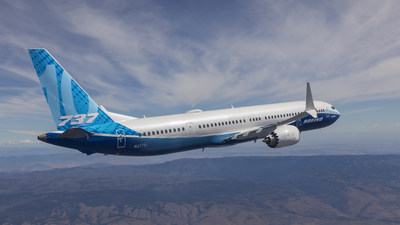Source: Boeing
- New Pilot and Technician Outlook (PTO) shows a 3.4% growth from 2021 for forecasted regions
- More than half of demand in China, Europe and North America; fastest growing regions are Africa, Southeast and South Asia
- Boeing developing digitally enabled competency-based training and assessment solutions focused on safety and quality
Boeing’s 2022 Pilot and Technician Outlook (PTO) forecasts demand for 2.1 million new aviation personnel over the next 20 years to safely support the recovery in commercial air travel and meet rising long-term growth.
The long-term forecast shows that 602,000 pilots, 610,000 maintenance technicians and 899,000 cabin crew members will be needed to support the global commercial fleet over the next two decades. The worldwide fleet is expected to nearly double and grow to 47,080 airplanes by 2041, according to Boeing’s recently released Commercial Market Outlook.
This year’s PTO represents a 3.4 percent increase from 2021, excluding the Russia region, which is not forecast in this year’s PTO due to sanctions that prohibit exports of aircraft manufactured in western countries and market uncertainty. China, Europe and North America represent over half of the total new personnel demand. The fastest growing regions are Africa, Southeast Asia and South Asia, with all three regions expected to grow more than 4 percent over the forecast period.
“As the commercial aviation industry recovers from the pandemic and plans for long-term growth, we anticipate a steady and increasing demand for aviation personnel, as well as the ongoing need for highly effective training,” said Chris Broom, vice president, Commercial Training Solutions, Boeing Global Services. “Our customer-centric approach and digital expertise includes a commitment to delivering data driven, competency-based training and assessment solutions as well as technologies that meet the evolving needs of our customers.”
New digital solutions to enhance the efficacy and efficiency of training would include immersive learning experiences and virtual learning platforms.
Projected demand for new pilots, technicians and cabin crew by global region for the next 20 years is approximately:
| Region | New Pilots | New Technicians | New Cabin Crew |
| Africa | 20,000 | 21,000 | 26,000 |
| China | 126,000 | 124,000 | 162,000 |
| Europe | 122,000 | 120,000 | 207,000 |
| Latin America | 35,000 | 35,000 | 48,000 |
| Middle East | 53,000 | 50,000 | 99,000 |
| North America | 128,000 | 134,000 | 173,000 |
| Northeast Asia | 22,000 | 24,000 | 38,000 |
| Oceania | 9,000 | 10,000 | 18,000 |
| South Asia | 37,000 | 34,000 | 43,000 |
| Southeast Asia | 50,000 | 58,000 | 85,000 |
Learn more about the Pilot and Technician Outlook

